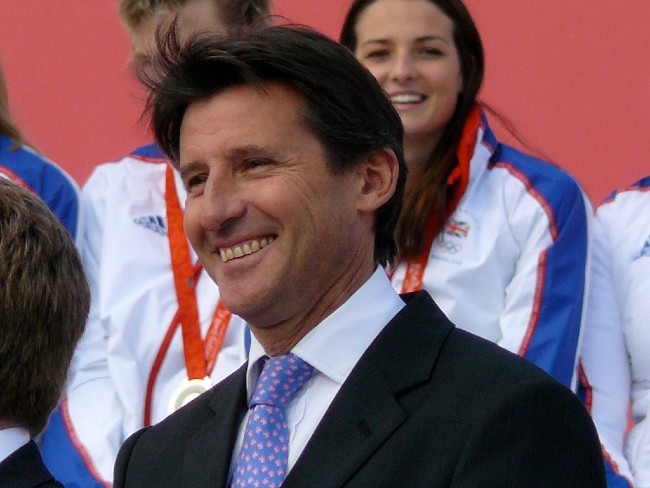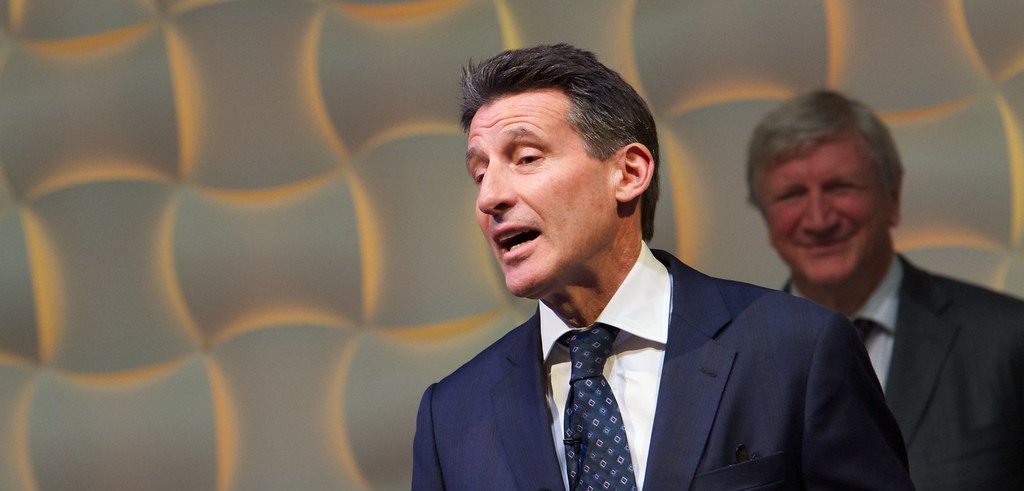16 April 2022
To mark World Voice Day on 16 April, we’re sharing our interview with the former Olympian Seb Coe, which was previously published in Bulletin, our members’ magazine.
It was after a gruelling week last year that Lord Sebastian (Seb) Coe received some jarring news. In the run-up to Christmas, the Olympic middle-distance runner and president of World Athletics had been speaking to journalists about the delayed Tokyo Olympics.
“That week, looking back, I probably had done eight to nine hours of interviews with every news group around the world,” says Coe, who splits his time between the UK and Monaco, where World Athletics is headquartered.
One of the last interviews of the week had been for the Today programme with BBC4 Radio sports journalist Garry Richardson. “I was conscious that my voice was a little tired, because, well, I was a little tired,” says Coe.
He was nevertheless surprised, a few days later, to receive an email forwarded by the BBC from a retired doctor who had listened to the show. In it, the doctor—a general practitioner—advised Coe to go and see somebody about his gravelly voice. “It was slightly unsettling,” says Coe.
Coe took the doctor’s advice and went to see an ear, nose and throat specialist in Guildford. The specialist looked into Coe’s throat with a camera and diagnosed him with hyperfunctional dysphonia.
Voice therapy
Dysphonia – the catch-all term for a hoarse or raspy voice – can be caused by a multitude of factors, like stress, overuse or a viral infection. Hyperfunctional dysphonia is when the muscles of the larynx work too hard. Symptoms include involuntary changes to the voice, and may also include fatigue after speaking for long periods, running out of breath, pain in the throat and frequent coughing.
After his diagnosis ruled out a more serious underlying condition, Coe was referred to an SLT who has been coaching him through a voice training programme, showing him how to relax his laryngeal muscles, to be more conscious of his breathing and posture when speaking, and to consider manual therapy.
As a double Olympic gold medal winner—he won the first in Moscow in 1980, and the second in Los Angeles in 1984, both for the 1,500 meters—Coe is no stranger to strenuous training regimes. Yet, he never thought he’d be training his voice, despite the fact that he was running the vocal equivalent of a marathon every day without periods of vocal rest.
Coe is not the first in his family with voice problems. His mother, a stage actress, developed nodes and cysts on her vocal cords, and also ended up with dysphonia in her 60s. Back then, in the 1970s, there wasn’t the same speech and language therapy support as now, says Coe. So, for some months, in order to protect her voice, she used to whisper—something that likely made her condition worse, he says. “The current orthodoxy is that you shouldn’t do that.”

Going public
What has come as a surprise to Coe is how interconnected the voice is with the rest of the body. “I hadn’t actually thought that if you sit there slumping in a chair, your voice can take strain,” he says. This, of course, is something he recognises from his athletics career. “You can have a foot problem, and it can be related to your lower back. You can have neck pain, which is related to your posture and your rib cage. There’s that commonality.”
That insight also helped him overcome feeling self-conscious about his condition, and the help he was getting. Although he says it can be a bit embarrassing doing voice sessions over the internet—something he’s been forced to do due to both the COVID-19 pandemic and the fact that he lives in Monaco for much of the time. Some exercises are especially awkward to do in front of a computer screen. “The second session had me trying to sing. I sounded like I was at La Scala, warming up, going ‘mi mi mi’. That’s not best done in front of your children, when they are also working remotely,” he says with a grin.
Now, Coe thinks about going for voice therapy as a bit like going to see a sports physio, or an osteopath. “I spent hours and hours on physiotherapist tables as a competitor. I get the need for maintenance and support and realignment,” he says. “If you walk around hunched, your hips and knees and feet will go. In running, posture is everything. It’s the difference between winning and losing.”
Coe says his voice condition has not affected his perception of himself or his identity as a public figure. “It didn’t make me self-conscious about talking,” he says. He wasn’t sure about engaging publicly about his condition at first, but then Garry Richardson, who is “a good friend” told him it might help others become more aware of their health problems, and “not to be brave and stoically bash on”, as he puts it.
He knows all too well how easy it is to overlook voice disorders. He’d personally never thought that his raspy voice was a cause for concern. But after he went public with his diagnosis, there was “massive interest”. Many of his friends said they had noticed his voice “getting a bit gravelly, as if I was doing a voiceover for a lager ad”.
In addition to his voice therapy, Coe has developed certain other support mechanisms to help his voice go the distance when there are long meetings to be held, or back-to-back interviews. “In my office, I now have a relay of warm honey and lemon drinks coming through,” he laughs. He says he’s already noticing a difference. “I sit a lot taller now, and I’m learning to breathe between sentences. It’s all been terrifically helpful.”
Taking care of your voice
Voice disorders affect around one in three people during their lifetime and professional voice users such as teachers and performers are particularly prone. Follow our tips on taking care of your voice – and bear in mind a hoarse voice lasting longer than three weeks should be checked out by a GP.
- Drink lots of water: eight to ten glasses a day is recommended
- Limit alcohol and caffeine: they can irritate the vocal cords
- Avoid inhaling smoke: your own and other people’s
- If you’re hoarse, don’t whisper: use your voice gently to avoid strain
- Before public speaking, ‘warm up’ your voice by humming
- Avoid foods that cause indigestion: reflux can irritate the vocal cords
- Limit your dairy intake: it can cause thick secretions and throat clearing
- Throat clearing leads to vocal cord irritation: cough gently or sip water instead
- Get a good night’s sleep: your vocal cords will thank you
- Tension and stress can impact the voice: make sure you practise self-care
Images: “Seb Coe” by Suede Bicycle is marked with CC BY-NC-SA 2.0. “Image” by Nottingham Trent University is marked with CC BY-NC-ND 2.0.
This article was originally published in the summer 2021 issue of Bulletin.
Giving Voice: campaigning and influencing
Raising awareness of speech and language therapy
Bulletin magazine
The UK’s foremost magazine for speech and language therapists
International Stammering Awareness Day 2021: interview with Felicity Baker
Interview with BBC News producer

